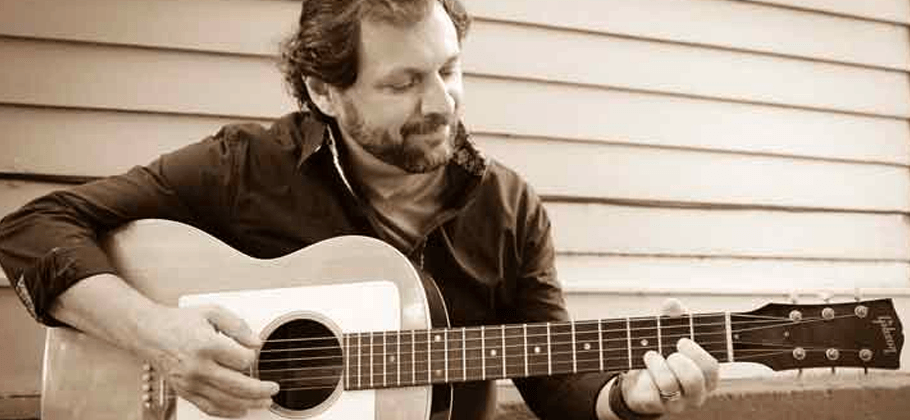by Marty Dodson
Dec 10, 2017

Someone recently asked me what I wish I had known when I first started trying to be a professional songwriter. There’s a lot of advice I WISH someone had given me back then, but here are a few things I would share with my younger songwriter self based on what I know now.
Don’t put a time limit on success.
When I started, I gave myself two years. At the end of two years, I had nothing to show for my work. It took me more than 5 years to have a hit. It takes most people 5-7 years, but putting a time limit on success is likely to leave you frustrated. I set myself up to be discouraged because, after the two year mark, I was “failing” as a songwriter according to my original plan.
I would tell my younger self to commit to songwriting without conditions, to do whatever it took to succeed for however long it took. That’s what I wound up deciding to do eventually, but I would have been a lot less frustrated and down on myself along the way if I had removed the time limits I arbitrarily put in place.
My pep talk would go something like this: “It takes a LONG time to become world class at anything. Just because friends and family like your writing doesn’t mean that it’s anywhere close to being commercially competitive. Buckle up, learn how to write better songs and plan to be in this for the long haul. Don’t expect quick success.”
Negative feedback on a song is a good thing.
I wish I had known that negative feedback wasn’t an attack on me as a writer, but someone caring enough to help me get better. I have grown more as a writer from negative feedback than I have from the positive kind. Often, when someone likes a song, I don’t really get feedback on why they like it, so it’s still hard to do it again the next time. Specific, negative feedback lets me know exactly where I went wrong.
Along the way, I took criticism way too personally, as if someone not liking one of my songs was a complete condemnation of me as a writer. I even went so far as to completely write off some great connections because they didn’t like one song. Several times, a negative reaction to ONE song was so devastating that I was ashamed to even go back to that person with another (better) song later. I talked myself into believing they thought I was a horrible writer, so I never went back. That was stinkin’ thinkin’. And it probably made my journey to success even longer and more difficult.
So, I would sit younger Marty down and say. “The people who criticize your songs in a constructive way are your best friends. Thank them and learn from their comments. We all write bad songs. Especially in the beginning. There is no shame in that. Keep your head up, listen and learn from your mistakes.”
Don’t worry about the monkey on your back.
There will always be a monkey on your back. Younger me didn’t know that. He thought that eventually, you could get all of the monkeys swatted away.
When you first start trying to write commercially, you get questions like “Have you sold any songs yet?” or “Have you written anything I might have heard of?” That’s what I call “The First Cut Monkey”. It’s embarrassing to answer “no” to those questions. That can either destroy you or motivate you. I thought that, after my first cut, the monkey would run into the forest. Nope. Then people would ask “Have you written any hits?” After my first hit, it was “Do you have any #1 songs?”
Even now, after 130 cuts and 10 #1 songs, I still get questions like “Have you won a grammy?” I answer, “No, but I will”. I’ve learned to let the monkeys motivate me.
So, if I went back in time to coach younger me, I’d say, “Don’t worry about monkeys. They will always be there. The people asking those questions aren’t trying to be mean (for the most part), they just don’t understand the music business. Just focus on writing and chasing your goals. Let someone else feed the monkeys!”
There will always be doubters.
Clay and I both had people in our lives try an “intervention” to talk us out of being songwriters. Those were hard to deal with at the time. And it was hard to deal with people who were not supportive in general. But, there will always be doubters.
Many people have family members who don’t believe in them. You’ll find lots of people in the music business who don’t believe in you. You can either prove them wrong or you can give in and stop believing in yourself as well.
I would tell young Marty, “You don’t need everyone to believe in you if YOU believe in yourself. Take the reins. You know how bad you want this, so go make it happen. You can prove the doubters wrong if you keep growing as a writer and you never give up on yourself.”
There is joy in even the small successes when you are doing something you love.
My younger self nearly gave up a BUNCH of times. Instead of celebrating each little victory and being thankful each day that he got to write another song, young Jedi Marty was always looking down the road at success – worrying about when, where and how it would come. Only later in my career did I begin to understand that the REAL joy is in working with creative people and creating something you love.
So, looking back I’d tell the young warrior – “Money and acclaim are awesome, but the real joy is in waking up each day to do something you love. Every single day that you wake up and get to write another song is a gift you’ve been given. Find the joy in writing without worrying about things that are out of your control. Write and enjoy the journey.”
Co-writing is like dating.
My younger songwriter self would sweat bullets wondering if his co-writers thought he was “any good” as a songwriter. He expected each co-write to go flawlessly. And he thought that everyone would intuitively know how to be a great co-writer. He was sadly mistaken and often disappointed.
Here’s what I would say to younger me if I could. “You have to go through lots of “not the ones” to find “right” ones. Even though co-writing can be frustrating, it will be your ticket to success. Without co-writers, you have to do everything to succeed all by yourself. That’s a lonely existence. Keep co-writing and finding out what sorts of skills in a co-writer compliment your own best. Study the art of co-writing and learn how to be a great one so that you attract great ones. And don’t expect all of them to be great. Learn from tough ones and move on to become a better collaborator yourself.”
You aren’t going to be world-class at everything.
Naïve younger Marty wanted to be the guy who could do everything. He bought thousands of dollars of equipment that he hardly ever used. He thought somehow that being a mediocre guitar player and decent singer would translate into making his own demos at home. He was mistaken. Again. He wasted a lot of time and money trying to be decent at things he would never be great at.
My “real talk” with him on this topic would go like this, “Pick one thing and become great at that. Find other people who are already great in the other areas. That will elevate your writing quicker than anything else you can do. Be real with yourself about your strengths and weaknesses. Then try to become world class at the things you are already strong at. You can spend 15 years trying to become a great guitar player and producer, or you can write with people tomorrow who are already world class at those things. Become world class at YOUR strength and you can build a long-lasting career as a songwriter.”
Starting out in any new business is hard.
Finally, our young friend Marty thought that becoming a hit songwriter sounded fairly easy. I mean, how hard could it be to write a great song? Then, you just have to send it to a big artist who will make it a hit. Young Marty won the 6th grade patriotic writing contest after all. Writing and winning were in his blood. If you don’t feel a bit of pity toward the young fella at this point, you have a heart of stone.
Younger Marty needed to hear this – “Nobody starts at the top. You wouldn’t expect to get out of law school and be named a partner in a major law firm. You would have to work your way up and it would take YEARS. It’s the same with songwriting. Dig in and keep learning. That’s the only chance you’ve got. Hard work and preparation are the keys to success. There is a huge learning curve when you start any new business. Put on your “student” hat and learn the craft and the business of songwriting. Then, work harder and smarter than anyone around you. That’s your best and only chance.”
I hope you’ve learned some things from my mistakes and that you’ll keep writing. You’ve to be in the game to win it!
Blessings
Marty
share
Write Better Songs Faster
Songwriting Success is Clay & Marty's 10-day video series that will help you level-up your songs and finish them faster. Enter your email address to get started!



